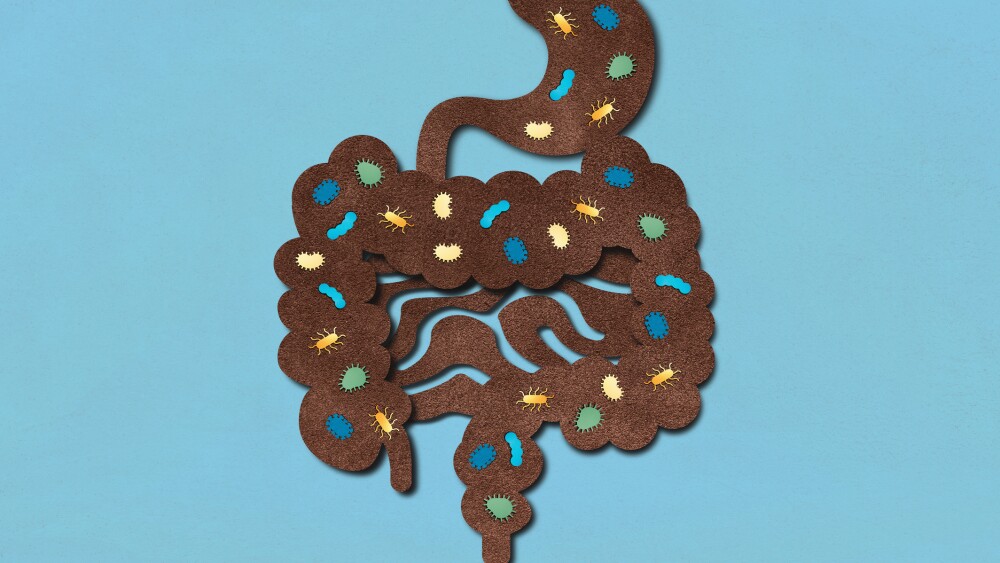Surrozen, Inc. announced that data from its inflammatory bowel disease program, including preclinical studies of SZN-1326 showing colonic mucosal healing in an acute injury model were presented during the 2021 United European Gastroenterology Week.
Encouraging preclinical data support continued advancement of SZN-1326 towards first in human clinical studies in 2022
SOUTH SAN FRANCISCO, Calif., Oct. 05, 2021 (GLOBE NEWSWIRE) -- Surrozen, Inc. (Nasdaq: SRZN), a company pioneering targeted therapeutics that selectively activate the Wnt pathway for tissue repair and regeneration, announced today that data from its inflammatory bowel disease (IBD) program, including preclinical studies of SZN-1326 showing colonic mucosal healing in an acute injury model were presented during the 2021 United European Gastroenterology Week. The congress, organized by United European Gastroenterology, is being held October 3-5.
“We believe that SZN-1326 is positioned to transform the treatment paradigm for patients suffering from IBD including Crohn’s disease and ulcerative colitis,” said Craig Parker, President and Chief Executive Officer of Surrozen. “It is highly encouraging to see these results that support further development of SZN-1326 into the clinic and ultimately provide patients with a novel treatment option.”
In one moderated poster session titled “SZN-1326 Promotes Colonic Mucosal Healing in an Acute Injury Model of IBD by Expanding the Progenitor Pool and Accelerating Differentiation,” the ability of SZN-1326 to transiently impact the epithelium to induce Wnt target and cell cycle gene expression in the stem and progenitor cell populations ultimately leading to accelerated epithelial regeneration and barrier repair, were presented.
In another moderated poster session titled, “SZN-1326, a Wnt Signal Activator, is more Efficacious than Cyclosporine A in an Acute DSS Model,” findings showed that in an acute DSS model, SZN-1326 repaired the damaged colon epithelium and restored the colon tissue structure. SZN-1326 also reduced the histology severity, inflammatory cytokines in the serum and the disease activity index while improving mucosal healing.
In a poster presentation titled, “SZN-1326, a Wnt agonist, was superior to anti-IL12/23p40 and anti-TNF-α antibodies in restoring epithelial integrity and mitigating colitis in a chronic DSS model,” findings from a study showed that in a chronic IBD model, administration of as little as four doses of 0.3 mg/kg of SZN-1326 starting on day 23 stimulated intestinal epithelial regeneration, induced mucosal healing and restored the epithelial barrier resulting in reduced inflammation and disease activity.
In a poster presentation titled, “Expression profiling of Wnt pathway genes in colon biopsies of patients with Ulcerative Colitis and Crohn’s disease,” it was concluded that reduced expression of Wnt receptors, RSPOs and Wnt target genes indicate insufficient Wnt signal induction in the damaged colon epithelium of Ulcerative Colitis and Crohn’s Disease patients. This could suggest that repairing the damaged epithelium by Wnt agonist treatment could constitute a new mechanism of action and benefit patients with Ulcerative Colitis and Crohn’s Disease.
Another poster presentation titled, “Pharmacokinetic and nonclinical safety evaluation of SZN-1326, a Wnt signal activator, in non-human primates,” indicated that SZN-1326 can be safely administered to non-human primates, with pharmacokinetics suitable for use in humans, and supported further investigation of this molecule in the setting of epithelial regeneration and mucosal healing in IBD.
About Wnt Signaling
Wnt signaling plays key roles in the control of development, homeostasis, and regeneration of many essential organs and tissues, including liver, intestine, lung, kidney, retina, central nervous system, cochlea, bone, and others. Modulation of Wnt signaling pathways has potential for treatment of degenerative diseases and tissue injuries. Surrozen’s platform and proprietary technologies have the potential to overcome the limitations in pursuing the Wnt pathway as a therapeutic strategy.
About Surrozen
Surrozen is a biotechnology company discovering and developing drug candidates to selectively modulate the Wnt pathway. Surrozen is developing tissue-specific antibodies designed to engage the body’s existing biological repair mechanisms with potential application across multiple disease areas, including inflammatory bowel disease, hepatitis, eye diseases, hearing loss, lung and airway diseases, and certain neurological disorders. For more information, please visit surrozen.com.
Forward Looking Statements
These materials may contain forward-looking statements regarding Surrozen, Inc. (the “Company”). There can be no assurance that these forward-looking statements can or will be achieved, and the Company makes no representations or warranties as to its actual future performance. In addition, the Company makes no warranties or representations regarding the accuracy or completeness of these materials and expressly disclaims any obligation to correct, update or revise any of these materials for any reason. The recipient of these materials should conduct its own investigation and analysis of the business of the Company and the data described in these materials.
Media Contact:
Ian Stone, Managing Director
CanaleComm
Tel.: (619) 518-3518
Email: ian.stone@canalecomm.com
Investor Contact:
Email: Investorinfo@surrozen.com






